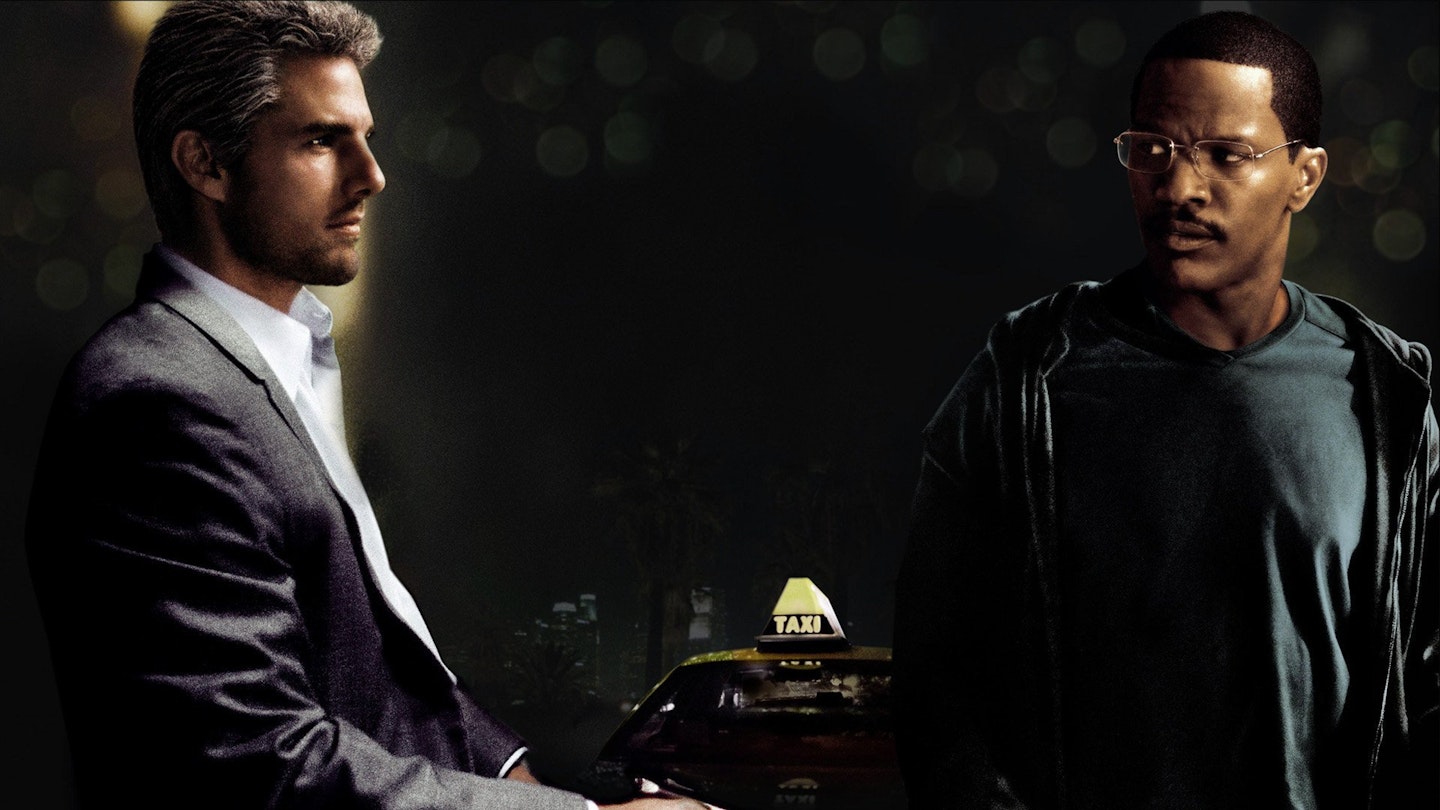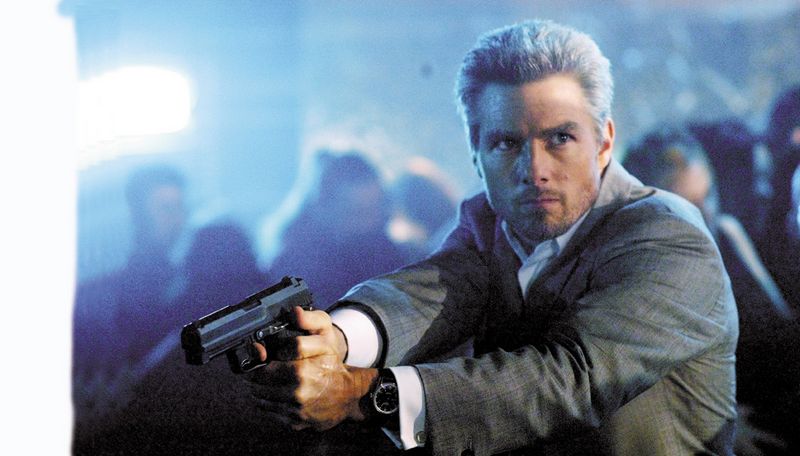Collateral (2004): A Nocturnal Thriller With Moral Shadows
Directed by Michael Mann and starring Tom Cruise and Jamie Foxx, Collateral is a taut, atmospheric thriller that explores morality, chance, and identity against the sleek, neon-lit backdrop of nighttime Los Angeles. Released in 2004, the film was a critical and commercial success, praised for its bold casting choices, moody digital cinematography, and character-driven tension.
The story follows Max (Jamie Foxx), a diligent, introverted cab driver with dreams of starting his own limousine company. One night, Max picks up Vincent (Tom Cruise), a sharply dressed, mysterious man who offers him $600 to be his personal driver for several hours. Max reluctantly agrees, not realizing that Vincent is a contract killer on a mission to eliminate five key witnesses before dawn.

The tension begins almost immediately, when a body falls onto Max's cab — the victim of Vincent's first hit. Shocked and trapped, Max is coerced into helping Vincent reach his remaining targets. As they travel across LA, from clubs to back alleys to corporate high-rises, the film unfolds in a series of tightly wound episodes that test Max’s moral compass and resolve.
What makes Collateral particularly compelling is the dynamic between its two leads. Tom Cruise, cast against type as a villain, plays Vincent with chilling precision — calm, philosophical, and ruthlessly efficient. Jamie Foxx, in a role that earned him an Academy Award nomination for Best Supporting Actor, portrays Max as vulnerable but quietly strong, gradually evolving from passive hostage to reluctant hero.

Michael Mann’s direction emphasizes mood and realism. Using high-definition digital cameras, Collateral captures the city of Los Angeles in an almost surreal, dreamlike state. The film’s nighttime visuals — filled with reflective glass, shadowy streets, and hazy city lights — elevate the sense of isolation and danger. The digital look was innovative at the time and gave the film a unique, modern texture that set it apart from other thrillers.
Themes of fate, morality, and anonymity run throughout the story. Vincent, who justifies his killings as “just part of the job,” serves as a dark mirror to Max, who has spent years avoiding risk or change. Their conversations — philosophical, confrontational, and occasionally darkly humorous — give the film emotional weight and moral ambiguity.
The climax builds to a suspenseful cat-and-mouse chase aboard a near-empty metro train, where Max finally confronts Vincent. In a satisfying reversal, Max, the character who started as the passive observer, takes control, ultimately outwitting the killer.

Critically acclaimed for its tight screenplay, nuanced performances, and sleek direction, Collateral was nominated for multiple awards and helped redefine Cruise’s career by showing his range beyond action-hero roles. It also reinforced Jamie Foxx’s rising star power, leading to his Oscar-winning performance in Ray that same year.
In summary, Collateral is more than just a thriller — it’s a meditation on chance encounters, moral compromise, and the invisible lives lived in the shadows of a sleeping city. It remains one of the defining crime films of the 2000s and a standout entry in both Cruise’s and Foxx’s filmographies.

-1754298038-q80.webp)
